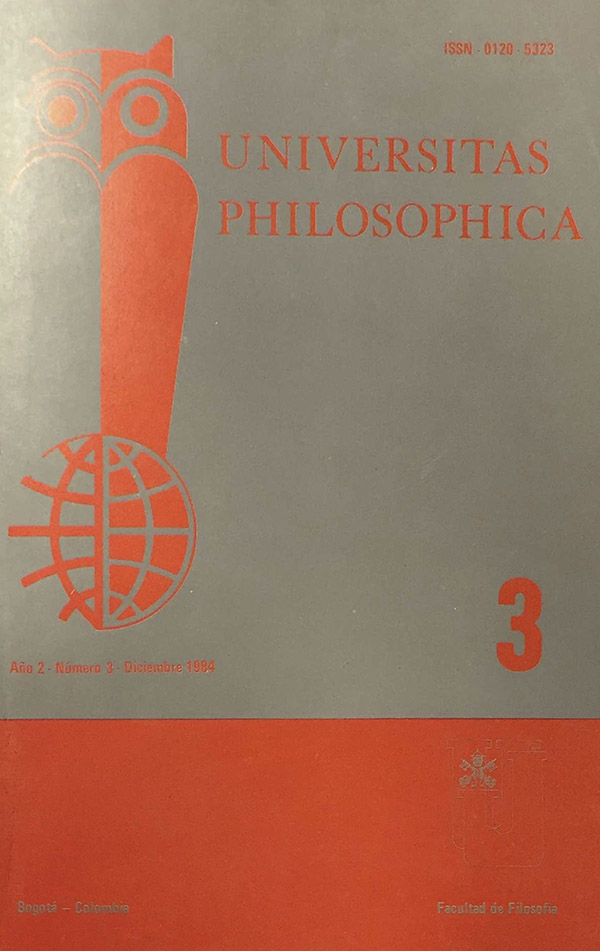Abstract
Hipias es un arquetipo del "amante del saber" pero de un saber que no ha accedido aún a la sabiduría de la crítica dialéctica. Ubicado en un terreno axiológico Sócrates, a través de una minuciosa argumentación dialéctica, sostiene la tesis -opuesta al sentido común y a la posición tradicional, representados en el diálogo por Hipias- de que quienes cometen injusticia con pleno conocimiento y deliberación son mejores que quienes lo hacen por ignorancia y sin proponérselo; que es sabio y virtuoso el que obra mal voluntariamente y a sabiendas. ¿ Cómo conciliar esta posición con la doctrina ética sostenida por Platón en sus otros diálogos? El autor de este artículo señala una salida plenamente coherente con el intelectualismo ético de Sócrates-Platón.
This journal is registered under a Creative Commons Attribution 4.0 International Public License. Thus, this work may be reproduced, distributed, and publicly shared in digital format, as long as the names of the authors and Pontificia Universidad Javeriana are acknowledged. Others are allowed to quote, adapt, transform, auto-archive, republish, and create based on this material, for any purpose (even commercial ones), provided the authorship is duly acknowledged, a link to the original work is provided, and it is specified if changes have been made. Pontificia Universidad Javeriana does not hold the rights of published works and the authors are solely responsible for the contents of their works; they keep the moral, intellectual, privacy, and publicity rights.
Approving the intervention of the work (review, copy-editing, translation, layout) and the following outreach, are granted through an use license and not through an assignment of rights. This means the journal and Pontificia Universidad Javeriana cannot be held responsible for any ethical malpractice by the authors. As a consequence of the protection granted by the use license, the journal is not required to publish recantations or modify information already published, unless the errata stems from the editorial management process. Publishing contents in this journal does not generate royalties for contributors.


